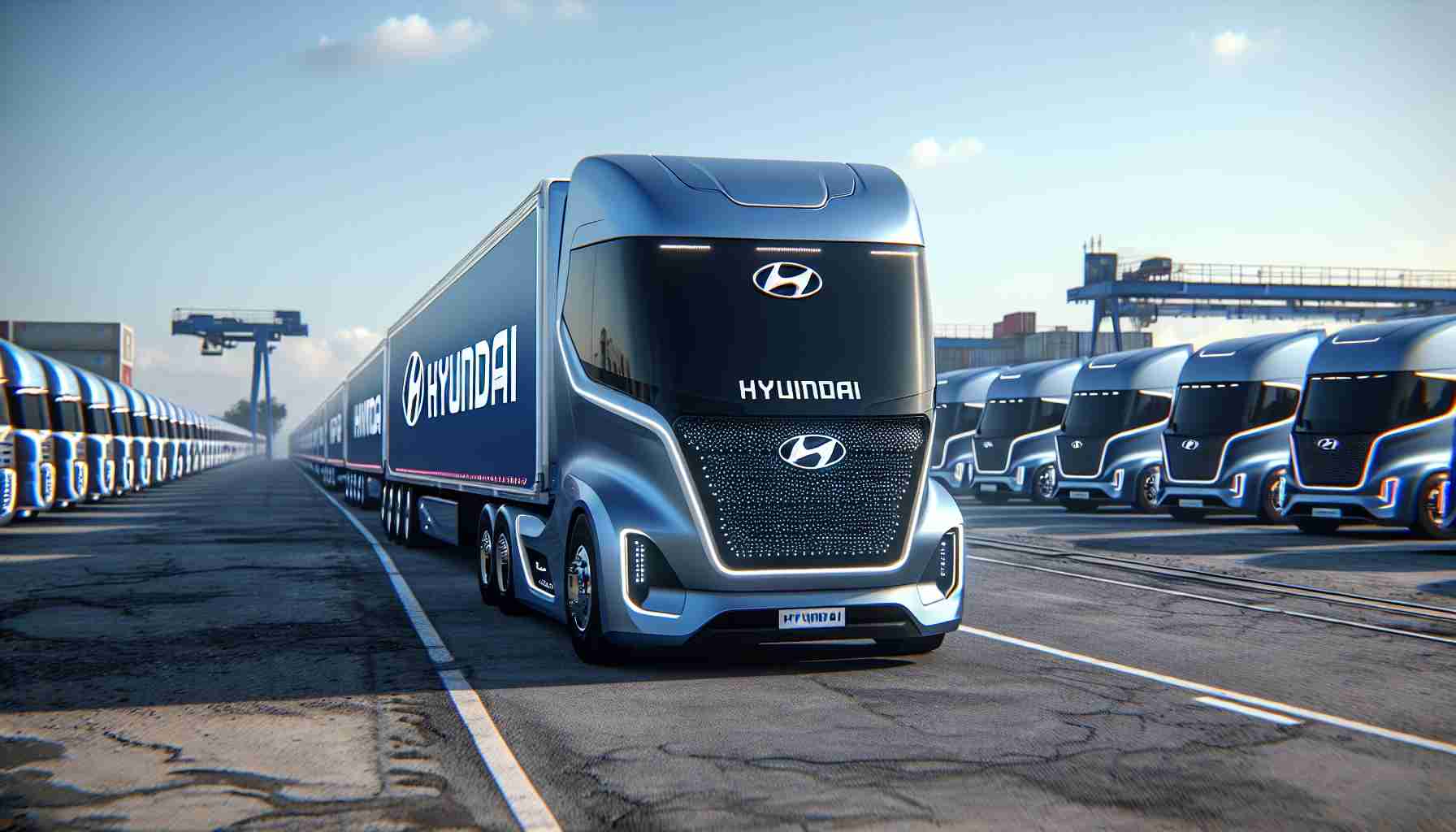The automotive industry is witnessing a remarkable shift as Hyundai unveils its latest advancement in hydrogen technology with the XCIENT HFCEV. This Class 8 semi truck has arrived in Georgia, ready to redefine heavy-duty logistics.
Hyundai is launching a fleet of 21 hydrogen semi trucks at the Hyundai Motor Group Metaplant America, specifically to enhance the efficiency of operations at this facility. Partnering with Glovis America, these trucks are equipped with powerful electric motors that generate approximately 470 horsepower and a staggering 1650 lb-ft of torque, enabling seamless performance even under heavy loads. Unlike standard electric vehicles, the XCIENT utilizes an Allison 400 Series six-speed automatic transmission, optimizing its power delivery for maximum efficiency on the road.
With an anticipated range nearing 400 kilometers (about 250 miles), the hydrogen semi trucks are engineered to facilitate logistics operations effectively, while still remaining environmentally conscious. Jim Park, a senior vice president at Hyundai Motor North America, emphasized the project’s alignment with their initiative towards sustainable manufacturing practices.
Moreover, the partnership plans to establish a mobile hydrogen refueling station on-site. This will not only streamline the refueling process but also enhance the control over hydrogen resources. As the industry evolves, Hyundai’s proactive approach aims to solidify its position as a leader in hydrogen-powered transportation, countering concerns surrounding infrastructure challenges faced by rivals like Nikola.
Hyundai Revolutionizes Heavy-Duty Transportation with Hydrogen Technology
Overview of Hyundai’s XCIENT HFCEV
The automotive sector is rapidly evolving, and Hyundai is at the forefront with its innovative hydrogen technology, particularly showcased in the launch of the XCIENT HFCEV. This Class 8 semi truck is poised to transform heavy-duty transportation by enhancing logistics efficiency while maintaining a commitment to sustainability.
Key Features of the XCIENT HFCEV
1. Power and Performance: The XCIENT HFCEV is fitted with robust electric motors delivering approximately 470 horsepower and an impressive 1650 lb-ft of torque. This configuration allows the truck to perform seamlessly, even while carrying heavy loads.
2. Transmission System: Unlike traditional electric vehicles, the XCIENT utilizes an Allison 400 Series six-speed automatic transmission. This specialized transmission system optimizes power delivery, thereby enhancing overall efficiency.
3. Hydrogen Power: With an estimated range of 400 kilometers (around 250 miles) per charge, the hydrogen fuel cell technology not only supports logistics but also significantly reduces carbon emissions, aligning with global sustainability goals.
Pros and Cons
Pros:
– Environmental Impact: The use of hydrogen helps reduce the carbon footprint compared to diesel-powered vehicles.
– High Performance: The torque and horsepower allow for effective handling of heavy loads.
– Infrastructure Development: The establishment of on-site hydrogen refueling stations enhances operational efficiency.
Cons:
– Limited Range: Although the range is competitive, it may not meet the demands of routes requiring longer distances without refueling.
– Hydrogen Infrastructure: Still relatively limited compared to electric charging stations, which could pose challenges for widespread adoption.
Use Cases
The XCIENT HFCEV is primarily designed for:
– Logistics Fleets: Ideal for companies looking to enhance sustainability within their operations while maintaining high efficiency.
– Urban Deliveries: Particularly suitable for short to medium-range deliveries in urban areas where emissions regulations are strict.
Market Insights and Trends
– Growing Demand for Clean Energy Vehicles: As countries push for greener transportation, hydrogen-powered vehicles are gaining traction, offering a viable alternative to battery electric trucks.
– Potential Industry Impact: Hyundai’s aggressive move into hydrogen technology could press competitors like Nikola and others to accelerate their development and deployment of similar technologies.
Future Innovations and Predictions
With the introduction of the XCIENT HFCEV, Hyundai is setting the stage for further advancements in hydrogen as a viable fuel source in transportation. As partnerships grow and infrastructure improves, we can anticipate:
– Enhanced Refueling Technologies: Continued innovation in hydrogen refueling methods.
– Expansion of Fleet Options: More manufacturers may follow Hyundai’s lead, resulting in a diverse range of hydrogen vehicles.
Conclusion
Hyundai’s introduction of the XCIENT HFCEV signifies a crucial step towards a sustainable future in heavy-duty transport. As logistics operations become increasingly eco-conscious, the need for hydrogen solutions will only grow, and Hyundai is well-positioned to lead this transformation.
For more information on sustainable automotive technologies, visit Hyundai.

